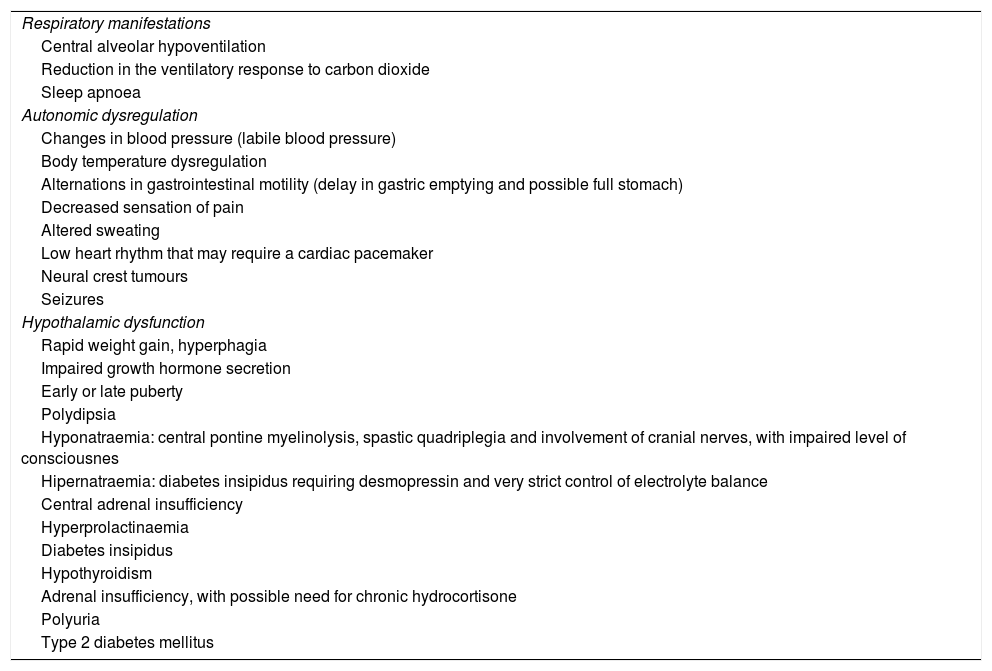Rapid-onset obesity with hypothalamic dysfunction, hypoventilation, and autonomic dysregulation (ROHHAD) syndrome is a rare entity that is characterised by its onset in healthy children at 2–4 years of age. It is a complex syndrome that includes, among other symptoms, rapid weight gain with hyperphagia, hypothalamic dysfunction, central hypoventilation, and autonomic dysregulation. The case is presented of a 10-year-old boy with a diagnosis of ROHHAD syndrome undergoing insertion of a port-a-cath under general anesthesia, who developed complications during the anaesthetic procedure related to his illness. The peri-operative management of these patients represents a challenge for the anaesthetist, given the involvement of multiple systems and the frequent respiratory comorbidities associated with them. A summary is presented of some of the implications and anaesthetic considerations that must be taken into account in the management of these patients.
El síndrome obesidad de rápida progresión, hipoventilación alveolar, disfunción hipotalámica y disregulación autonómica (ROHHAD) es una entidad infrecuente caracterizada por un comienzo en niños sanos a los 2-4 años. Se trata de un síndrome complejo caracterizado por una rápida ganancia de peso con hiperfagia, disfunción hipotalámica, hipoventilación central y disregulación autonómica, entre otros síntomas. Presentamos el caso de un niño de 10 años con diagnóstico de síndrome de ROHHAD a quien se colocó un porth-a-cath bajo anestesia general y que desarrolló complicaciones durante el procedimiento anestésico relacionadas con su enfermedad. El manejo perioperatorio de estos pacientes supone todo un reto para el anestesista dada la afectación de múltiples sistemas y las frecuentes comorbilidades respiratorias que asocian. Se resumen algunas de las implicaciones y consideraciones anestésicas que hay que tener en cuenta en el manejo de estos pacientes.
Artículo
Comprando el artículo el PDF del mismo podrá ser descargado
Precio 19,34 €
Comprar ahora








